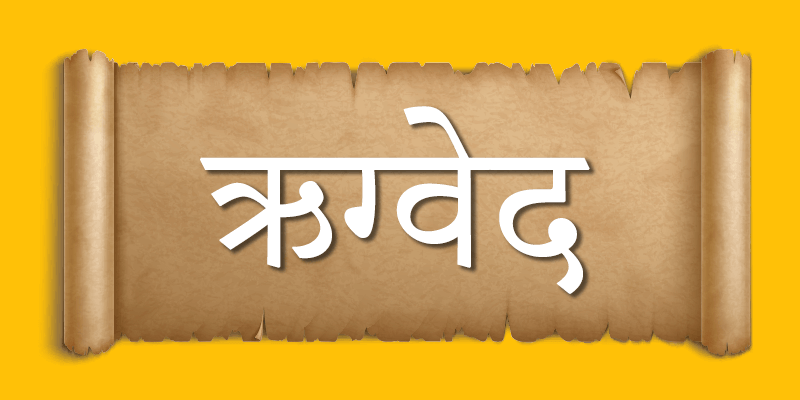Exploring the Rigveda: The Foundation of Ancient Wisdom

Introduction to the Rigveda:
The Rigveda is one of the oldest and most important texts of the Vedas, holding a central place in Indian spiritual and philosophical traditions. This ancient scripture is a treasure trove of hymns, rituals, and philosophical insights that continue to resonate with seekers of truth.
What is the Rigveda?
The Rigveda (ऋग्वेद) is a collection of hymns composed in Sanskrit, forming the oldest part of the Vedas. It consists of 1,028 hymns dedicated to various deities and natural forces, reflecting the spiritual and cultural ethos of ancient India.
The Structure of the Rigveda
The Vedas Rigveda is divided into ten books, known as Mandalas, each containing hymns that explore themes of creation, spirituality, and the universe. These texts are foundational to understanding the development of Indian philosophy and religion.a.
Rig Veda in Hindi
For those seeking to study the Rig Veda in Hindi, numerous translations and commentaries are available, making this ancient wisdom accessible to a wider audience. This facilitates a deeper understanding of its teachings and relevance in contemporary life.
Rig Veda in English
Similarly, the Rig Veda in English offers translations that help non-Hindi speakers appreciate its profound insights. Scholars and enthusiasts alike have contributed to bringing the teachings of the Rigveda to the global stage.
Key Themes of the Rigveda
The Rigveda encompasses various themes, including:
Cosmology: Exploration of the universe's origins and the nature of existence.
Deity Worship: Hymns dedicated to gods like Indra, Agni, and Varuna, reflecting the reverence for natural forces.
Philosophical Inquiry: Questions about the self, the ultimate reality, and the nature of the divine.
Divisions of the Rigveda:
1. Ashtak Kram:
Divided into eight Ashtaks, each containing eight chapters (Adhyayas) and further segmented into various categories.
Each category within the Ashtak Kram serves a distinct purpose, contributing to the overall structure and organization of the Rigveda.
2. Mandal Kram:
Structured into 10 Mandalas, each attributed to different seers and containing a varying number of hymns and verses.
The Mandal Kram provides a thematic arrangement of the hymns, reflecting the spiritual evolution and diverse experiences of the ancient seers.
Shakhas (Branches) of the Rigveda:
The Rigveda is preserved in various Shakhas or branches, with five principal ones being:
- Shakal
- Vashkal
- Ashvalayan
- Shankhayayan
- Mandukayan
Each Shakha represents a distinct lineage of Vedic recitation and transmission, contributing to the preservation and dissemination of the Rigvedic tradition.
Key Points about the Rigveda:
The Rigveda comprises a total of 10,600 mantras. Additional mantras were added later, including those in the tenth Mandala, famously known as the "Purusha Sukta," which begins with a description of the origins of the four Varnas, starting with the Shudras.
The tenth Mandala also contains other significant hymns such as the Nasadiya Sukta (Creation Hymn), Vivaha Sukta (Marriage Hymn), Nadi Sukta (River Hymn), and Devi Sukta (Goddess Hymn), among others.
The Rigveda's seventh Mandala includes the mention of the Gayatri Mantra, one of the most revered and popular mantras in Vedic literature.
Numerical Composition:
Rigveda's composition reflects meticulous enumeration by the ancient seers. According to the Anukramanika attributed to Katyayana and others, the Rigveda contains 10,580 mantras and 153,526 words. Another Anukramanika attributed to Shaunaka states the text contains 432,000 syllables. This precision underscores the reverence and care with which the text was transmitted across generations.
References in texts like the Shatapatha Brahmana suggest that Prajapati composed a text containing exactly 12,000 syllables. This aligns with the concept of 12,000 being multiplied by 36, resulting in 432,000 syllables, symbolizing the completeness and perfection of the Rigvedic corpus.
The Rigveda, as available in the Shakala Samhita, comprises 10,552 mantras. Despite minor variations, the core content remains consistent across different Shakhas or recensions, affirming the integrity and resilience of Vedic transmission.
Conclusion
The Rigveda remains a cornerstone of Indian heritage, offering timeless wisdom and spiritual guidance. Whether you explore the Rig Veda in Hindi or the Rig Veda in English, this ancient scripture continues to inspire and enlighten seekers across generations. Embrace the teachings of the ऋग्वेद and unlock the profound knowledge embedded in this sacred text.